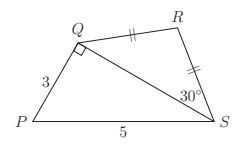I’m a very firm believer in that concept called Mindset, which no doubt many of you have heard of through the work of Carol Dweck. An important idea behind “mindsets” is that brains respond well to exercise. Which exercise, they develop and grow. Part of having a positive mindset involves the preparedness to make mistakes, which, it has been argued, is not something embraced in our culture. According to a New York Times writer (Peter Sims) successful people have the following habits: They
- Feel comfortable in being wrong;
- Try seemingly wild ideas
- Are open to different experiences
- Play with ideas without judging them
- Are willing to go against traditional ideas
- Keep going throughout difficulties
Boaler, J (2016), Mathematical Mindsets, San Francisco CA: Jossey-Base
Of course, persevering when all you can see is the probability of failure is a difficult nut to crack but with a positive mindset, it can undoubtedly be done. Here are some ideas:
- Review the day’s work for half an hour each evening on the days you have maths;
- Attend tutoring on any afternoon from Tuesday to Friday in the Library from 3:30pm to 5:00pm. There is always a Maths specialist rostered on, but do be prepared to be proactive and have work to go through with the tutor. Maybe it’s a bit late for this year, but you can get off to a bright start for next year by attending.
- If you get stuck on a topic, consult YouTube. There is not a topic in high school and undergraduate Maths that is not covered on this great service. Khan Academy videos are very suitable and are now carefully sequenced with related topics.
- Ensure you get help in class. Obvious, I know, but it is unfortunately inevitable that squeaky doors get the oil.
So, to exercise the brain a little bit, let’s see who can solve these little beauties:
Find the length of the side RS in this diagram:
And, for the advanced reader I have this little gem:
What is the largest three-digit number with the property that the number is equal to the sum of its hundreds digit, the square of its tens digit and the cube of its units digit?
I would be very interested to speak with any student who solves these problems. There’s got to be at least a merit slip for the first few correct entries.
Ed Mickleburgh (Head of Mathematics)

